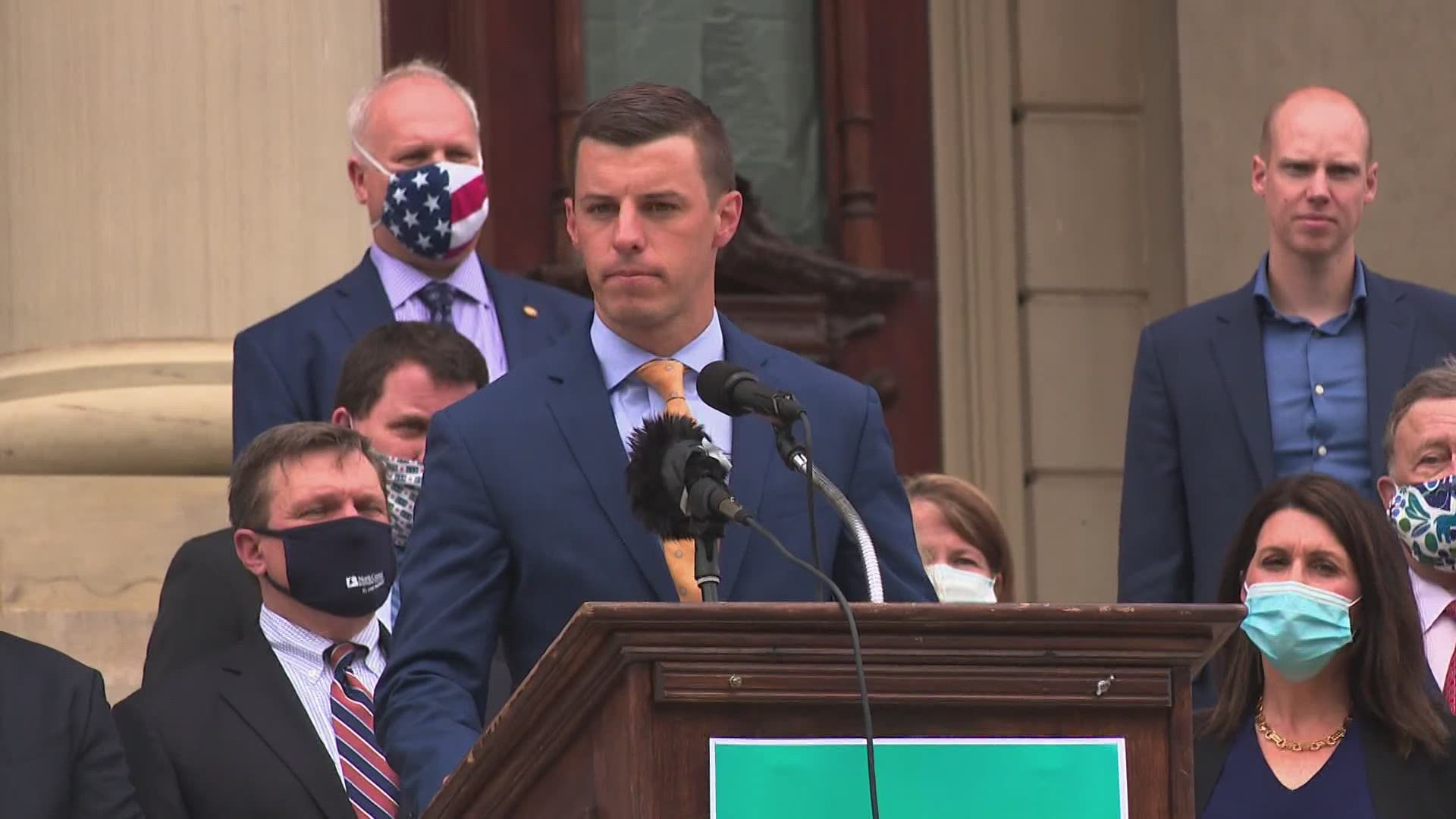LANSING, Mich. — State leaders came to an agreement Monday evening on how to balance the 2020 budget amid a $2.2 billion shortfall caused by the coronavirus pandemic.
Democratic Gov. Gretchen Whitmer along with Senate Majority Leader Mike Shirkey, R-Clarklake, and House Speaker Lee Chatfield, R-Levering, said the agreement, which relies on things like federal relief dollars and spending cuts, provides necessary funding for Michiganders grappling with the costs incurred during the pandemic.
“COVID-19 has had an unprecedented impact on our state budget. In this time of crisis, it is our responsibility to come together and build a budget that reflects a bipartisan commitment to the things we value most as Michiganders," reads a joint statement from state leaders.
The budget shortfall was addressed by making cuts to state aid for public safety costs that are now eligible for federal aid dollars, schools, universities and community colleges and local governments. In addition, the state is using $350 million from the state's Rainy Day Fund and saving $490 million through layoffs, spending freezes in state government.
To then offset state spending cuts, leaders allocated over $3 billion in federal CARES (Coronavirus Aid, Relief, and Economic Security) Act dollars to various sectors. Last week, republican lawmakers proposed putting over a billion CARES Act dollars into the school system to assist them in reopening this fall. Previously, there was uncertainty if the dollars could be used in this way, however, Shirkey said he was confident this was an appropriate use.
Federal dollars will be injected into schools, higher education institutions and local governments in the following amounts:
- $512 million for schools
- $53 million to support hazard pay for teachers
- $200 million for universities and community colleges
- $150 million for local governments.
In addition, CARES Act dollars have been allocated toward supporting businesses and public health emergency response. The CARES Act dollars are supposed to be used up by the end of the calendar year.
Despite reaching this agreement, state leaders note there is still a budget shortfall and they are looking to the federal government for assistance.
"Our collective priority is a healthy state and a healthy economy. We are committed to working together to address the remaining shortfalls in next year’s budget and we are looking to our partners in Congress for support to help maintain the essential services relied upon by our families and small businesses," the statement continued.
There are also increasing concerns for the 2021 fiscal year, which starts Oct. 1.
The agreement still needs approval from the whole Legislature.
More stories on 13 ON YOUR SIDE:
RELATED VIDEO:
►Make it easy to keep up to date with more stories like this. Download the 13 ON YOUR SIDE app now.
Have a news tip? Email news@13onyourside.com, visit our Facebook page or Twitter. Subscribe to our YouTube channel.


